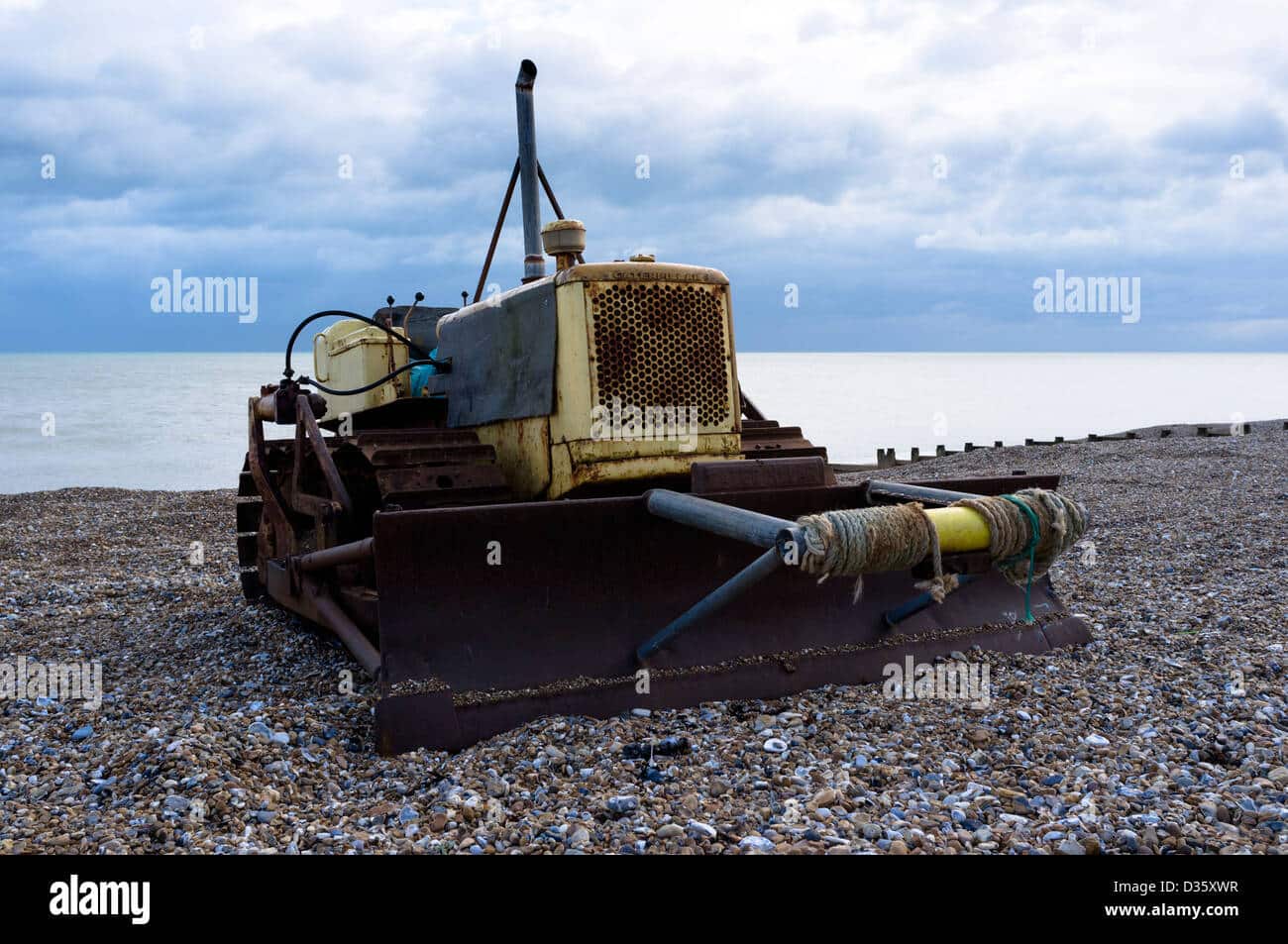Dr. Ken Buesseler is a renowned scientist at the Woods Hole Oceanographic Institution, specializing in marine radiochemistry. His work focuses on studying the fate and distribution of radioactive elements in the ocean. By using radiotracers, which come from various sources such as erosion or nuclear tests, he explores essential natural oceanic processes.
Radiotracers play a crucial role in oceanography as they allow dating sediment layers, tracking ocean currents, and analyzing the marine carbon cycle. By assessing radioactivity, Buesseler and his colleagues can better understand marine dynamics and the impacts of pollution, including those related to events such as nuclear accidents. This research is fundamental to sustainability and the management of marine ecosystems, thus securing our future at sea.
|
IN BRIEF
|

Table of Contents
ToggleKen Buesseler: Pioneer of Marine Radiotracers in Oceanography
Dr. Ken Buesseler is a senior scientist at the renowned Woods Hole Oceanographic Institution, located in Woods Hole, Massachusetts. As the leader of the Center for Marine and Environmental Radioactivity, he is recognized for his significant contributions in the field of oceanography and marine radiogeochemistry. His exceptional career is marked by his role as the founder of the partner organization Our Radioactive Ocean (ORO), which is dedicated to studying the effects of radioactivity on marine ecosystems.
Buesseler’s research particularly focuses on the use of radiotracers to understand the dynamics of radioactive elements in the ocean. These radioactive particles, originating from natural or anthropogenic processes such as erosion, nuclear testing, and nuclear accidents, provide a unique window into marine processes. By analyzing these particles, Buesseler can not only date sediment layers but also track ocean currents and explore various aspects of marine chemistry.
One of the main areas of Buesseler’s research concerns the assessment of particle fluxes and their impact on the oceanic carbon cycle. Using naturally occurring isotopes, it is possible to quantify and determine the sources and transport of sediments in the ocean. This allows for a better understanding of environmental concerns and the effects of climate change on marine ecosystems.
His major accomplishment lies in adapting methods for quantifying and assessing floating and sinking particles. By combining man-made radioactive isotopes with those from nature, Buesseler has refined analytical techniques to study ocean processes more accurately. This has led to significant discoveries regarding the degradation of organic particles and their role in carbon sequestration.
One of the crucial questions Buesseler raises is the absence of a federal agency in the United States to assess the risks of marine radioactive contamination. His work, which includes studies on the effects of nuclear tests and the Chernobyl disaster, highlights the need for increased monitoring of radioactivity levels in our oceans. These radioactive elements can have long-term effects on the health of marine ecosystems and the human communities that depend on them.
Professor Buesseler has also published numerous scientific articles addressing various topics, such as the toxic legacy of nuclear waste and the impact of environmental events on radioactive activity in the ocean. These publications have led to a better understanding of the complex interactions between radiotracers and marine ecosystems, shedding light on essential issues related to sustainability and the resilience of oceans.
Ultimately, the work of Dr. Ken Buesseler and the use of marine radiotracers represent an essential aspect of modern oceanographic research. These advances not only enrich our understanding of oceanographic mechanisms but also emphasize the urgent need for a proactive approach to contemporary environmental challenges.
The work of Dr. Ken Buesseler, a renowned scientist at the Woods Hole Oceanographic Institution, highlights the use of marine radiotracers in the study of natural processes in the oceans. As a marine radiochemist, he utilizes radioactive particles to uncover the secrets of ocean currents and biogeochemical cycles. The importance of these tools in current oceanography is essential for understanding not only the marine environment but also its complex interactions with human activities.
The Applications of Marine Radiotracers
Radiotracers, such as those studied by Buesseler, play a crucial role in various scientific applications. For instance, they allow for dating sediment layers, a method that helps scientists trace the geological history of the seabed. By analyzing the distribution and degradation of radioactive isotopes, valuable data can be obtained on the dynamics of oceanic ecosystems and the carbon cycle. This information is essential for understanding the consequences of climate changes and phenomena such as pollution.
Radiotracers and Contaminant Monitoring
Buesseler’s research also extends to evaluating marine contamination risks. By using radiotracers from various sources, including events like nuclear tests or accidents such as Fukushima, he has been able to analyze and quantify radioactive levels in the ocean. This approach not only monitors the impact of radioactive substances on marine ecosystems but also highlights the lack of adequate regulations to manage these risks.
Contributions to Modern Oceanography
The work of Dr. Ken Buesseler and his contributions to the use of radiotracers are recognized in the field of modern oceanography. By improving methods for quantifying suspended particles and radioactive elements, he actively contributes to our understanding of oceanic biogeochemical cycles. His approach is particularly significant given the current environmental challenges, as it ensures better management of marine resources and increased protection of the environment.
To learn more about Ken Buesseler’s work, you can consult his Google Scholar profile or the Woods Hole Oceanographic Institution. Recent articles, such as one published on the tenth anniversary of the Fukushima disaster, highlight the ongoing importance of his research (see the article here).
Dr. Ken Buesseler, a distinguished scientist at the Woods Hole Oceanographic Institution, has dedicated his career to studying marine radiotracers and their use in understanding oceanic processes. Through his work, he has demonstrated that the utilization of radioactive particles can provide a unique window into mechanisms at sea, from current dynamics to biogeochemical cycles. In this article, we will examine Buesseler’s significant contributions and the growing importance of radiotracers in the field of oceanography.
Ken Buesseler’s Contributions to Oceanography
Ken Buesseler is best known for his expertise in marine radiochemistry, where he uses radioactive isotopes to examine the fate and distribution of radioactive elements in the ocean. His innovative approach enables valuable insights into natural processes, such as the degradation of organic particles and the transport of pollutants, especially after nuclear events. For example, his research on the impacts of nuclear tests and disasters like Chernobyl has illuminated our understanding of marine contamination risks, highlighting the need for increased monitoring.
The Applications of Marine Radiotracers
Marine radiotracers play a crucial role in understanding oceanic circulation mechanisms and biogeochemical cycles. By analyzing radioactive particles, Buesseler can date sediment layers, allowing him to study the age of organic waste and map carbon flows in the ocean. This dynamic is essential for modeling climate change and assessing human impact on marine ecosystems. His work also contributes to developing strategies to protect marine resources against threats such as climate change and pollution.
The Challenges of Marine Radioactivity Research
Despite the undeniable advances made by Buesseler, there remains a significant obstacle: the lack of adequate institutional support to continuously monitor marine radioactivity. Buesseler has often criticized the absence of a federal agency dedicated to this issue in the United States, highlighting the urgency for more in-depth research on the effects of marine contamination. Such an initiative would be crucial for properly assessing potential risks to human health and the environment.
A Model for Future Generations of Researchers
The work of Ken Buesseler serves not only as a reference in the field of oceanography but also as a model for young researchers eager to explore the impact of radionuclides on marine ecosystems. By sharing his research and publications, as evidenced by his page on ResearchGate, he inspires a new generation of experts to engage in this scientific path. His contributions continue to be a valuable resource for all those interested in the fragile balance of our oceans. For more information on his work, you can view his online CV here.









